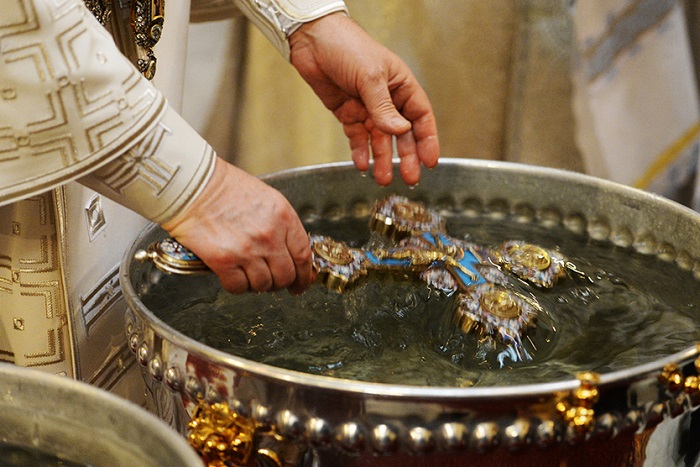Have you ever wondered about the significance of holy water in the Bible? In many religious traditions, holy water plays a crucial role in spiritual practices and rituals. In this blog post, we will explore what the Bible has to say about holy water and its significance for believers.
Discovering the biblical perspective on holy water can provide valuable insights into its symbolic meaning and the benefits it offers to those who use it in their faith journey. By delving into the scriptures, we can gain a deeper understanding of how holy water is used as a tool for cleansing, protection, and spiritual renewal in the lives of believers. Join us as we unpack the spiritual significance of holy water in the Bible and uncover the blessings it brings to those who seek its purifying touch.
The Significance of Holy Water According to the Bible
What Does the Bible Say About Holy Water
Holy water is a significant symbol and ritual in many Christian denominations, particularly in the Catholic Church. The practice of using holy water dates back to ancient times and has deep roots in the tradition of Christianity. But what does the Bible say about holy water?
In the Bible, water is often used as a symbol of purification, renewal, and life. It is associated with the Holy Spirit, who brings new life and cleanses believers from sin. In the Old Testament, water is used in rituals of purification and cleansing, such as the washing of hands and feet before entering the temple.
One of the most well-known stories involving water in the Bible is the baptism of Jesus by John the Baptist in the River Jordan. This event marked the beginning of Jesus’ public ministry and symbolized his identification with humanity and his anointing by the Holy Spirit.
The concept of holy water in the Christian tradition is closely linked to the idea of cleansing and sanctification. By blessing water with prayers and invoking God’s presence, the water is believed to be imbued with spiritual power and used for various rituals and sacraments.
While the Bible does not explicitly mention the use of holy water as a sacramental, the concept of using water for purification and blessings can be found throughout the scriptures. In the Book of Exodus, for example, Moses was instructed to purify the Israelites with water before entering into a covenant with God.
In the New Testament, the Apostle Paul speaks of the cleansing power of water as a symbol of spiritual purification and regeneration. In Ephesians 5:26, Paul writes that Christ cleanses the church “by the washing with water through the word.”
Overall, the use of holy water in Christian rituals and ceremonies is a symbolic way of recognizing the sacredness of water as a means of grace and blessing. It serves as a reminder of our need for spiritual cleansing and renewal, and a tangible expression of God’s presence and power in our lives.
What is the significance of holy water in the Bible?
Holy water is not specifically mentioned in the Bible. However, water is often used symbolically throughout the Bible to represent important themes such as cleansing, purification, and renewal. In the Old Testament, water is used in rituals of purification for various purposes, such as the consecration of priests or the cleansing of impurities.
In the New Testament, water is also associated with baptism, which is a symbol of spiritual purification and rebirth. Jesus himself was baptized in water by John the Baptist, setting an example for his followers. Baptism is seen as a spiritual cleansing that marks the beginning of a new life in Christ.
While there is no direct mention of holy water in the Bible, the concept of water as a symbol of cleansing and purification is deeply rooted in biblical imagery. The use of holy water in Christian tradition likely evolved from this symbolic understanding of water’s purifying qualities.
Do Christians believe in holy water?
Yes, Christians believe in holy water. In many Christian traditions, holy water is water that has been blessed by a clergy member and is used for various religious purposes, such as blessings, baptisms, and ritual purifications. The use of holy water is based on biblical teachings and symbolizes cleansing, protection, and spiritual renewal.
What is the power of holy water?
In the context of the Bible, the power of holy water is symbolic. Holy water is often used in religious ceremonies and rituals to represent purification and spiritual cleansing. It is believed to carry divine grace and blessings, serving as a physical reminder of one’s commitment to God and the faith. The use of holy water is not magical or mystical in itself, but rather serves as a sacramental to help strengthen one’s faith and connection to God.
What is the significance of water in the Bible?
Water holds great significance in the Bible, symbolizing purification, cleansing, and life. In the Old Testament, water is often used in rituals for purification and cleansing. For example, the Israelites were instructed to wash themselves before entering the tabernacle or participating in certain ceremonies.
In the New Testament, water is also associated with baptism, a symbol of spiritual cleansing and rebirth. Jesus himself was baptized in the Jordan River by John the Baptist, marking the beginning of his public ministry.
Additionally, water is used metaphorically in the Bible to represent life and refreshment. In John 4:14, Jesus speaks of the water he offers as a spring of water welling up to eternal life. This reflects the idea of water as a source of spiritual sustenance and renewal.
Overall, water plays a significant role in the Bible as a symbol of purification, cleansing, rebirth, and spiritual sustenance, illustrating its importance in the context of faith and salvation.

